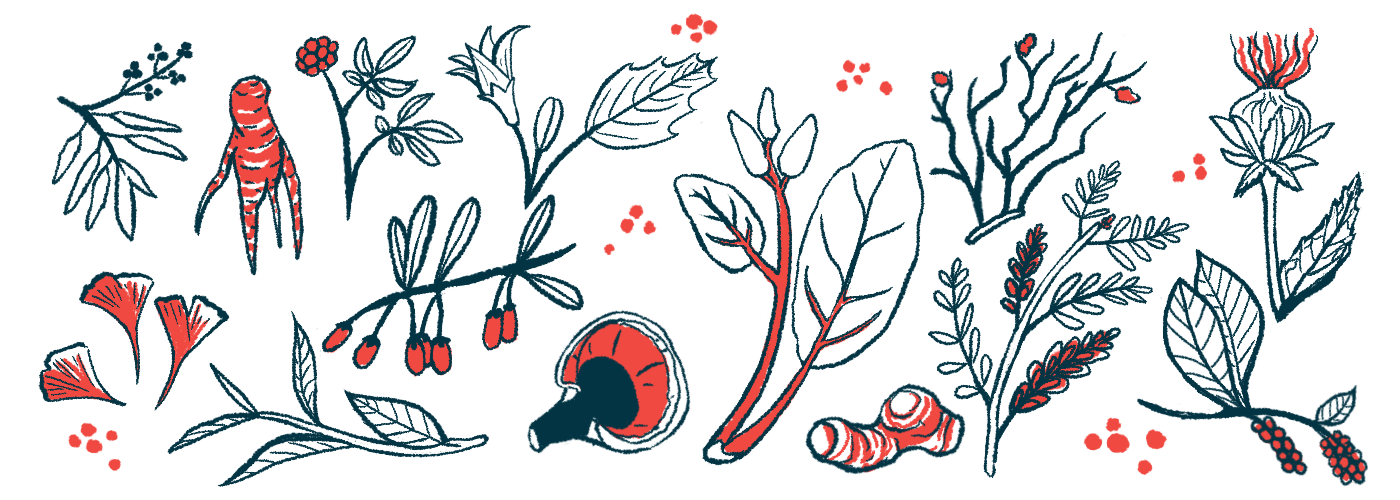Twice-daily ginseng tablets lessen fatigue in NMOSD: Study
No major side effects seen in Phase 3 clinical trial

Three months of ginseng tablets taken twice a day lessened fatigue in people with neuromyelitis optica spectrum disorder (NMOSD), a placebo-controlled Phase 3 clinical trial found.
Ginseng is a plant that has been used in traditional Chinese medicine for thousands of years.
“This study revealed positive effects of ginseng on reducing fatigue in NMOSD patients with no major side effects,” the researchers wrote. “Further studies are warranted to evaluate and clarify the effects of ginseng on fatigue in NMOSD.”
The study, “The Effect of Ginseng on Fatigue Related to Neuromyelitis Optica Spectrum Disorder: A Double-Blinded Randomized controlled Clinical Trial,” was published in the Caspian Journal of Internal Medicine.
NMOSD is a progressive autoimmune disease that leads to damaging inflammation of the spinal cord and optic nerve, the nerve that sends signals between the eyes and the brain. This inflammation can cause symptoms including problems with vision and muscle control, which often occur periodically, separated by periods of remission.
Fatigue common in NMOSD
People with NMOSD often experience fatigue, a feeling of constant exhaustion or lack of energy, which has a negative impact on quality of life.
Some studies suggest that chronic fatigue may be caused by the excess production of reactive oxygen species, highly reactive chemicals produced as part of the cell’s metabolic processes. When these are not neutralized by the cell’s natural antioxidants, they can lead to a type of tissue damage called oxidative stress.
The root of the ginseng plant contains complex molecules called ginsenosides, which have been shown to have antioxidant properties in cell and animal models.
“There are several studies showing improvement in fatigue status with ginseng,” wrote the researchers, from the Tehran University of Medical Sciences. Those include studies of people with multiple sclerosis, who “have several similar manifestations to NMOSD patients,” they said.
However, “to the best of our knowledge, these effects have not been studied on NMOSD patients,” the researchers said. With this in mind, they conducted a Phase 3 trial (IRCT20200713048095N1) to test the impact of ginseng on fatigue in people with NMOSD.
Ginseng tablets ease fatigue, patients report
The study enrolled 64 NMOSD patients at the university’s Sina Hospital. Participants were randomly assigned to take an oral tablet containing either 250 mg of ginseng or a placebo, twice daily for three months.
A total of 58 patients completed the study, 29 in each group. These patients had a mean age of 36.8, and 89.7% were women. The two groups had no significant differences in terms of clinical and demographic characteristics.
A higher proportion of patients assigned to ginseng were also receiving the immunosuppressive therapy rituximab (marketed as Rituxan in the U.S. and MabThera in Europe, and available as biosimilars) than those given a placebo (72.4% vs. 58.6%).
Fatigue was assessed before and after three months of treatment using the Fatigue Severity Scale (FSS), a self-reported questionnaire that evaluates the severity, impact, and frequency of fatigue on daily living. A total score of 36 or higher was considered severe fatigue.
Before treatment, there was no significant difference in the mean FFS scores between the treatment and placebo groups. Those assigned to take ginseng tablets reported a mean score of 40.20, while the mean for those in the placebo group was 35.03.
The FFS score analysis after three months of treatment, adjusted for scores at study’s start, showed that ginseng supplementation was associated with a significantly lower FFS score relative to a placebo (28.97 vs. 38.79).
These changes represented an 11.24-point decrease in the FFS score for ginseng-treated patients, reflecting less fatigue after three months, and a 3.75-point score increase with placebo, indicating worsened fatigue.
No side effects were reported with treatment with twice-daily ginseng tablets, during or after the study.
“Overall, this study concluded ginseng as a possible safe and effective candidate for the treatment of fatigue in NMOSD,” the researchers wrote. “It can be argued that menopause, which can affect fatigue, was not evaluated in this study, and is considered as one of the limitations of the study.”
Larger studies, involving longer-term treatment, are needed to confirm the benefits of ginseng supplementation, the researchers said.






